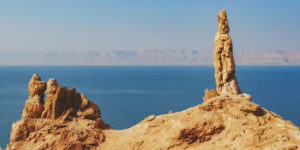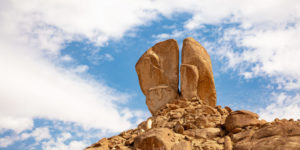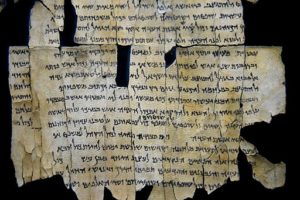David’s Poetry Tells History of Creation
A King’s Lesson about Creation
Which would you typically read as historical text – narration or poetry? While narration is how we usually see historical events recorded (first this, then that, and so on), Biblical poetry gives us significant information about the history of creation. King David is a young earth Creationist, who writes the theme into the book of Psalms. Although the narration style in Genesis naturally feels more historical, King David’s poetry also contains fascinating, historical details about Creation. We will explore what both Genesis and Psalms say about creation on our upcoming Creation tour and African Family Safari.
Creation Ministries International states “One of the biggest misconceptions that people have about the Bible is that while narrative teaches history, poetry is not conveying historical truth. While the poetry in the Bible does not communicate in the same way as narrative (or it would not be poetry), and has different emphases, it is a vehicle for communicating truth.” (creation.com/psalm-1). One of the most detailed creation psalms is Psalm 104. See how David gives us an idea of God’s magnificence and creativity:
Bless Yahweh, O my soul!
Yahweh my God, you are very great!
You are clothed with splendor and majesty,
covering yourself with light as a garment,
stretching out the heavens as a tent.
He lays the beams of his chambers on the waters;
he makes the clouds his chariot;
he rides on the wings of the wind;
he makes his messengers winds,
his ministers a flaming fire.
He set the earth on its foundations,ff
so it should never be moved (104:1–5).
Comparing Genesis and Psalms
If we compare the book of Genesis, as a narrative, to the book of Psalms, as poetry, we will find a very consistent theme about the earth’s Creation. In both, the six days of creation are displayed, just in different ways. In Genesis, the third day is known for God’s forming vegetation, like plants and trees.
“Then God said, “Let the land produce vegetation: seed-bearing plants and trees on the land that bear fruit with seed in it, according to their various kinds.” And it was so. The land produced vegetation: plants bearing seed according to their kinds and trees bearing fruit with seed in it according to their kinds. And God saw that it was good. And there was evening, and there was morning—the third day.” (Gen. 1:11-13)
Now, in Psalms, David’s poetry describes the third day:
“You cause the grass to grow for the livestock and plants for man to cultivate, that he may bring forth food from the earth and wine to gladden the heart of man, oil to make his face shine and bread to strengthen man’s heart.” (Psalms 104:14-18)
David gives us the opportunity to praise God for His amazing works. Psalms doesn’t just exist to support the verses in the Book of Genesis, but to remind us to give thanks to the Creator for His Creation. You can read more about how King David was a Creationist at www.creation.com/psalms-1.



